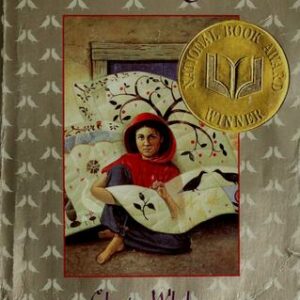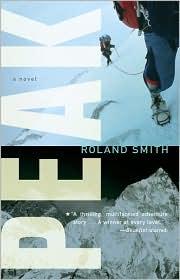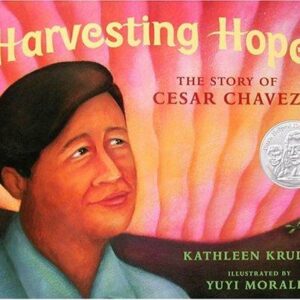Lived Wisdom in Jewish Antiquity
$39.95
| Title | Range | Discount |
|---|---|---|
| Trade Discount | 5 + | 25% |
- Description
- Additional information
Description
Moving away from focusing on wisdom as a literary genre, this book delves into the lived, embodied and formative dimensions of wisdom as they are delineated in Jewish sources from the Persian, Hellenistic and early Roman eras. Considering a diverse body of texts beyond later canonical boundaries, the book demonstrates that wisdom features not as an abstract quality, but as something to be performed and exercised at both the individual and community level.
The analysis specifically concentrates on notions of a ‘wise’ person, including the rise of the sage as an exemplary figure. It also looks at how ancestral figures and contemporary teachers are imagined to manifest and practice wisdom, and considers communal portraits of a wise and virtuous life. In so doing, the author demonstrates that the previous focus on wisdom as a category of literature has overshadowed significant questions related to wisdom, behaviour and social life. Jewish wisdom is also contextualized in relation to its wider ancient Mediterranean milieu, making the book valuable for biblical scholars, classicists, scholars of religion and the ancient Near East and theologians.
Elisa Uusimäki is Associate Professor in Hebrew Bible at Aarhus University, Denmark.
Acknowledgements
Permissions
Introduction
1. Living Embodiments of Wisdom: The Sage as an Exemplar
2. Learning and Lifestyle: The Everyday Performance of Wisdom Teachers
3. Shared Wisdom: Ideal Ways of Living in Jewish Communities
4. Conclusions
Bibliography
Index
“Clearly structured and well researched, this is a valuable contribution to the study of Jewish wisdom in the late second temple period as lived, and well-integrated into its Hellenistic Mediterranean context.” —SOTS: The Society for Old Testament Study Book List“Elisa Uusimäki brings a fresh perspective to bear on ancient Jewish wisdom literature, approaching it from the angle of lived experience rather than from literary categories. Also refreshing is her interdisciplinary perspective and her integration of materials written in Greek and Hebrew. A most stimulating book!” —John J. Collins, Holmes Professor of Old Testament, Yale University, USA“What is wisdom and how can it be performed? Elisa Uusimäki leads her reader through a rich variety of early Jewish writings in which wisdom appears as lived religion and embodied practice, not just an abstract idea or a moral objective. Deconstructing canonical boundaries, she reveals how Jewish sages taught and performed wisdom in the international context of the Greco-Roman world, both as a quality of an individual and as a communal endeavour.” —Martti Nissinen, Professor of Biblical Studies, University of Helsinki, Finland“Elisa Uusimäki offers a refreshing perspective on wisdom as a way of life in Second Temple Judaism. Her innovative approach brings early Jewish writings into conversation with classical Greek philosophy, making it clear how Judaism could have been perceived as a “philosophy” in the ancient world.” —Karina Martin Hogan, Professor of Theology, Fordham University, USA
Additional information
| Weight | 1 oz |
|---|---|
| Dimensions | 25 × 156 × 9 in |
Lived Wisdom in Jewish Antiquity
$39.95
| Title | Range | Discount |
|---|---|---|
| Trade Discount | 5 + | 25% |
- Description
- Additional information
Description
Moving away from focusing on wisdom as a literary genre, this book delves into the lived, embodied and formative dimensions of wisdom as they are delineated in Jewish sources from the Persian, Hellenistic and early Roman eras. Considering a diverse body of texts beyond later canonical boundaries, the book demonstrates that wisdom features not as an abstract quality, but as something to be performed and exercised at both the individual and community level.
The analysis specifically concentrates on notions of a ‘wise’ person, including the rise of the sage as an exemplary figure. It also looks at how ancestral figures and contemporary teachers are imagined to manifest and practice wisdom, and considers communal portraits of a wise and virtuous life. In so doing, the author demonstrates that the previous focus on wisdom as a category of literature has overshadowed significant questions related to wisdom, behaviour and social life. Jewish wisdom is also contextualized in relation to its wider ancient Mediterranean milieu, making the book valuable for biblical scholars, classicists, scholars of religion and the ancient Near East and theologians.
Elisa Uusimäki is Associate Professor in Hebrew Bible at Aarhus University, Denmark.
Acknowledgements
Permissions
Introduction
1. Living Embodiments of Wisdom: The Sage as an Exemplar
2. Learning and Lifestyle: The Everyday Performance of Wisdom Teachers
3. Shared Wisdom: Ideal Ways of Living in Jewish Communities
4. Conclusions
Bibliography
Index
“Clearly structured and well researched, this is a valuable contribution to the study of Jewish wisdom in the late second temple period as lived, and well-integrated into its Hellenistic Mediterranean context.” —SOTS: The Society for Old Testament Study Book List“Elisa Uusimäki brings a fresh perspective to bear on ancient Jewish wisdom literature, approaching it from the angle of lived experience rather than from literary categories. Also refreshing is her interdisciplinary perspective and her integration of materials written in Greek and Hebrew. A most stimulating book!” —John J. Collins, Holmes Professor of Old Testament, Yale University, USA“What is wisdom and how can it be performed? Elisa Uusimäki leads her reader through a rich variety of early Jewish writings in which wisdom appears as lived religion and embodied practice, not just an abstract idea or a moral objective. Deconstructing canonical boundaries, she reveals how Jewish sages taught and performed wisdom in the international context of the Greco-Roman world, both as a quality of an individual and as a communal endeavour.” —Martti Nissinen, Professor of Biblical Studies, University of Helsinki, Finland“Elisa Uusimäki offers a refreshing perspective on wisdom as a way of life in Second Temple Judaism. Her innovative approach brings early Jewish writings into conversation with classical Greek philosophy, making it clear how Judaism could have been perceived as a “philosophy” in the ancient world.” —Karina Martin Hogan, Professor of Theology, Fordham University, USA
Additional information
| Weight | 1 oz |
|---|---|
| Dimensions | 25 × 156 × 9 in |









